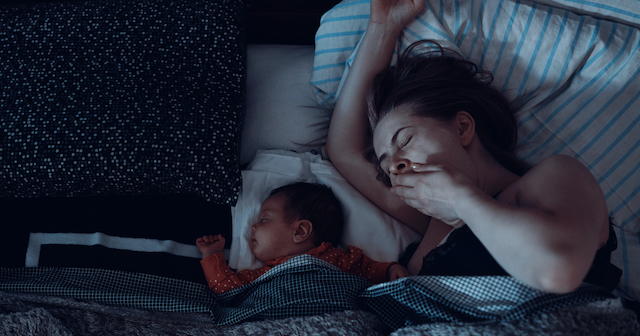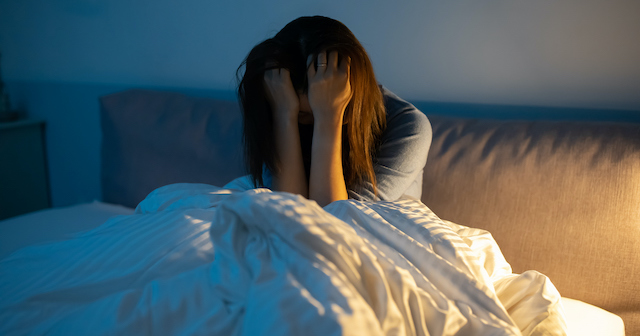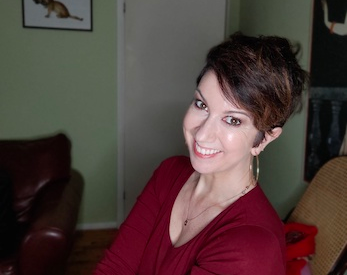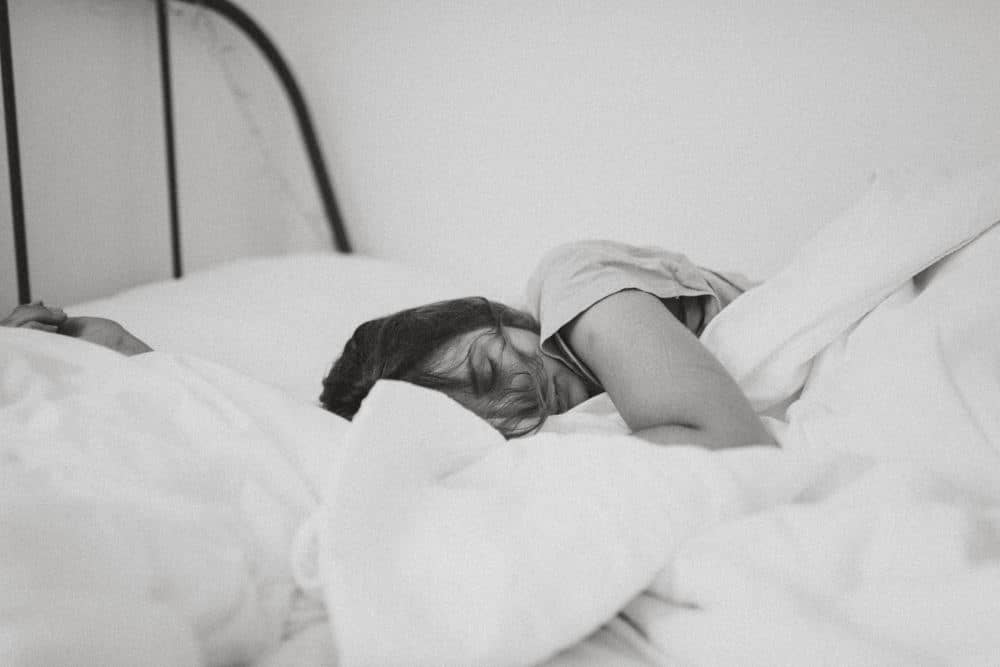We all have problems sleeping from time to time and most of us can put up with the occasional bad night. But if you regularly struggle to sleep, you might have insomnia. Being starved of sleep - even for a short time - can leave you feeling drained and irritable, affecting everything from your confidence to your concentration. Every day can feel like hard work, and despite your exhaustion, you may come to dread bedtime and the thought of another sleepless night.
Research suggests women are 1.5 to 2 times more likely than men to have insomnia. That can mean you find yourself pushing on, trying to cope with work, home life and relationships without the base of a good night’s sleep.
It can feel like a difficult problem to sort. But even if you’ve been struggling with insomnia for many years, there are proven ways to help you get the sort of sleep you crave.
What are the symptoms of insomnia?
Generally, you may have insomnia if you regularly:
- find it difficult to fall asleep
- lie awake at night
- wake up a few times during the night
- wake up early and can’t fall back asleep
- feel tired during the day
- find it hard to take naps in the day, despite being tired
- find it difficult to concentrate during the day
- feel irritable because you’re tired
The types of insomnia
Temporary insomnia
Temporary or short-term insomnia - doctors may call it ‘acute insomnia’ - is when you have difficulty sleeping for a short period of anything up to 3 months. It’s often the result of things going on in your life, such as bereavement, relationship breakdown or a big workload, for example. It can even happen when there’s something exciting happening, like getting married - it may be positive but it still means there’s a lot going on in your mind and that can keep you wakeful.
Acute insomnia could also have a physical cause, like pregnancy or menopause. Waking in the night to feed or soothe a baby can be another trigger - up to a point, this is a normal part of being a new parent but some women find it hard to get back to sleep. Whatever the reason, once the cause of your insomnia clears, your sleep problems usually ease.

Chronic insomnia
For some people, insomnia can be a longer term issue. If you have trouble falling or staying asleep for 3 or more nights a week, for 3 months or more, you’re considered to have chronic insomnia. You may have trouble sleeping for months at a time. Some people with chronic insomnia have a long history of sleep problems, on and off over years.
Sound familiar? You’re not alone. It’s hard to know exactly how many people have chronic insomnia but research estimates around 1 in 3 adults in Western countries like the US and UK have sleep problems at least once a week, and 6-10% have full-blown insomnia.
Types of insomnia based on your symptoms
Whether your insomnia’s temporary or chronic, sleep experts may sometimes describe it in extra detail, based on your pattern of sleep problems.
Sleep onset insomnia
You have trouble falling asleep in the first place, even once you’ve been in bed for 20-30 minutes.
Sleep maintenance insomnia
You can’t stay asleep through the night. You might nod off at first but wake multiple times, or wake early and struggle to get back to sleep again.
Early morning awakening insomnia
You wake earlier than you want to and can’t fall asleep again - some experts see this as a type of sleep maintenance insomnia.
Mixed insomnia
A mixture of the above types, as some people alternate between having trouble falling asleep and waking in the night.
Comorbid insomnia
This is a term once used to describe insomnia caused by an underlying condition, such as pain, anxiety or sleep apnoea. But nowadays, doctors understand there’s a two-way relationship between sleep and many other medical conditions. So, while an underlying condition might trigger insomnia, lack of sleep may worsen symptoms of the condition, affecting sleep even more.
What causes insomnia?
Anything that affects your sleep can trigger insomnia. This can include things in your environment, like noise, light and having a bedroom that’s too warm, or drinking caffeine or alcohol too late in the day (read more about the basic things you need in place to for good sleep). Health issues are also common triggers - for example stress, anxiety or depression and hormone changes linked to your menstrual cycle or menopause.
Insomnia can become chronic when you start to worry about missing out on sleep. You begin to feel automatically anxious and uptight about sleep, which puts you into a tense, wakeful state at bedtime or if you wake in the night.
You may then start trying to introduce steps to control your sleep anxiety, over-focusing on your thoughts and feelings around sleep, which only makes matters worse. Once you’re in this cycle, it can be hard to break out of it.

How can you improve your insomnia?
If you’ve been dealing with a lack of sleep for a long time, it’s likely you’ve tried lots of things to help, from natural remedies to medicines, either from the pharmacy or from your doctor. But to change your sleeping pattern for good, you need to get to the root of your insomnia with proven steps.
- start by reviewing the basics. Poor sleep hygiene is unlikely to be the only cause of insomnia but it might be part of your problem so it’s always worth going over it again. Have a look at our science-based tips and try to follow them as much as you can. - you can’t underestimate the benefits of things like sticking to a regular bedtime, winding down in the evening and having a cool, dark, comfortable bedroom
- check for hidden sleep disturbers. Read our article on sleep myths to make sure you’re not doing things you think are helpful - but are actually disrupting your sleep pattern. For example, it’s common to reach for alcohol if you’re having trouble sleeping because it can help you nod off, but it actually causes problems in later sleep stages, leaving you feeling tired the next day. Then you may end up needing caffeine to perk you up throughout the day, and turning to alcohol again in the evening to offset the effects of stimulants
When to see your doctor
If you’re not sure whether to go to your doctor, or what to say if you do, try our Smart Symptom Checker. It helps you work out if your best next step is a visit to your doctor. It also gives you personalised information based on your symptoms so you can give your doctor helpful information. You could keep a sleep diary or use the sleep trackers in the Healthily app, so you can both see exactly what’s going on and spot patterns over time.
Your doctor can help you:
- get a diagnosis of insomnia
- manage any underlying conditions, which might go at least some way to resolving your insomnia
- refer you to a sleep clinic, but normally only if they suspect you have a sleep disorder like sleep apnoea - you won’t typically be referred for insomnia alone
- prescribe various sleeping medicines, which may help with severe insomnia symptoms in the short term. But these aren’t recommended for long-term use and don’t deal with chronic insomnia
The gold-standard treatment for insomnia
If this is a long-term or recurring issue for you, the recommended treatment is cognitive behavioural therapy for insomnia, often shortened to CBT-I, which you might get in person or digitally. It aims to help you change your thoughts and feelings about sleep, learn relaxation techniques and break unhelpful habits.
CBT-I really can make a difference, with a review of studies finding it’s effective for sleep onset and maintenance insomnia, and another suggesting it’s as good as sleeping pills for treating insomnia in people who have sleep problems along with depression. You have to be committed to CBT-I for it to work well but it’s worth it, so stick at it. Some of the strategies include:
- learning to link your bedroom with sleep and rest instead of wakefulness (stimulus control therapy). It means breaking the link between your sleeping environment and feelings of stress, and learning to associate your bedroom with sleep and rest instead. This technique usually involves making sure you only use the bedroom for sex and sleep, only go to bed when you’re tired (so you don’t end up lying there wakeful) and getting up at a regular time, even if you haven’t had much sleep
- matching the time you spend asleep to the time you spend in bed (sleep restriction). So, if you’re only managing to sleep for 4 hours, that’s the time you allocate to being in bed - again, the idea is to avoid lying in bed feeling stressed. Each week, you slightly increase the length of time you spend in bed until you build up to a normal amount of hours
- reducing your stress around sleep by challenging your thinking. Lots of people with chronic insomnia have unhelpful beliefs about sleep, such as over-estimating the negative impact of poor sleep or having unrealistic expectations about how much they should be getting. Therapy can help you develop some different beliefs that turn down feelings of stress around sleep
Your health questions answered
Does Covid-19 cause insomnia?
Sleep and stress are linked and that’s one reason the pandemic’s thought to have triggered sleep problems. Covid-related insomnia even has a name: coronasomnia. The reasons have been different for everyone - you might have been struggling with loneliness, had to juggle caring responsibilities with work, or have had money trouble.
On the other hand, you might have had insomnia during the pandemic as a direct result of Covid-19. Doctors think there are a few different reasons, including:
- medicines that cause insomnia as a side effect
- being treated in a hospital, which can be very noisy and cause lack of sleep
- symptoms like breathlessness or coughing waking you up
- long Covid - research suggests sleep problems could be a symptom
If this sounds like you, mention it to your doctor - it’s important to get help for any sleep problems you might be having during your recovery from the virus.








